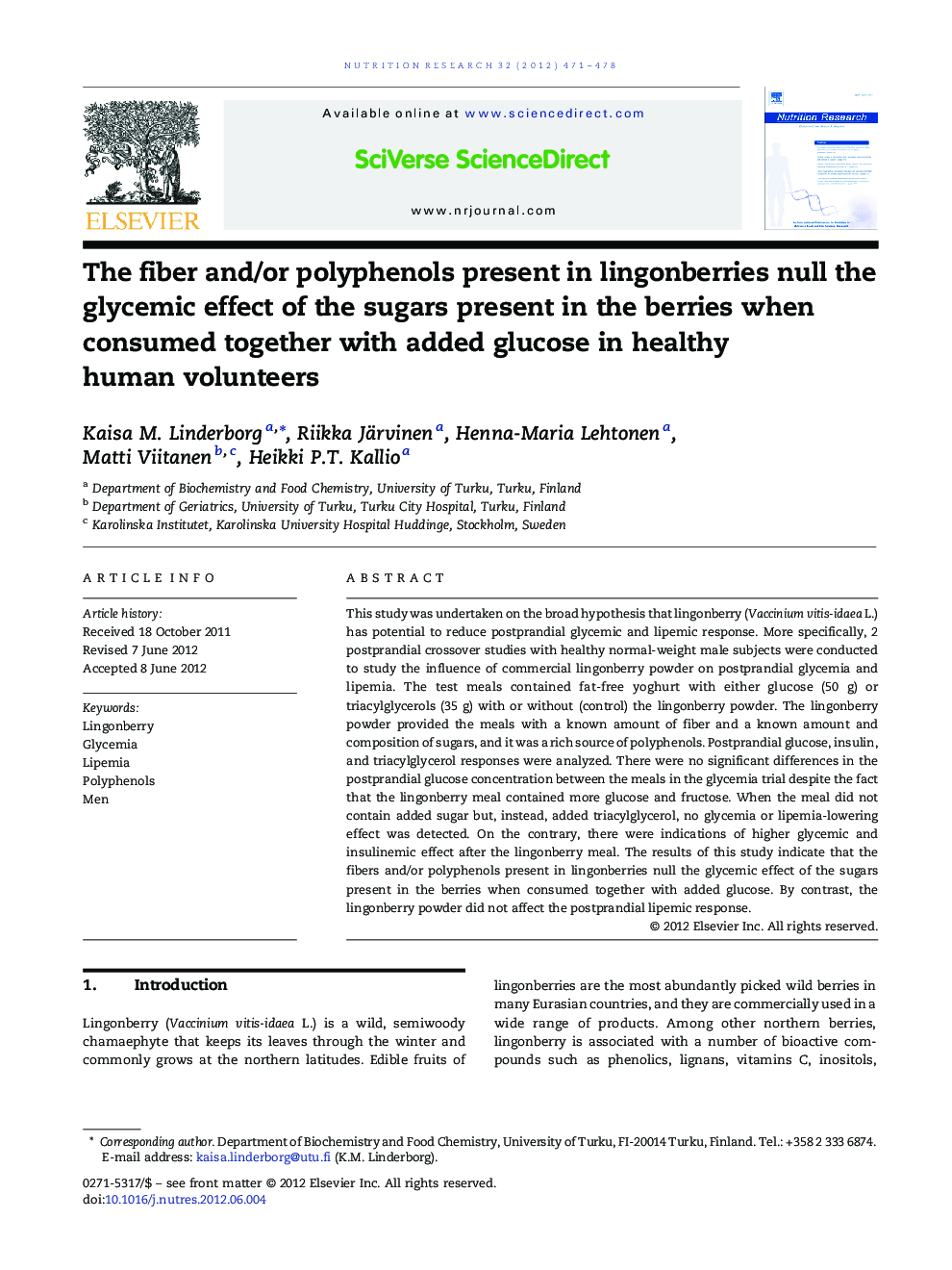| Article ID | Journal | Published Year | Pages | File Type |
|---|---|---|---|---|
| 5904626 | Nutrition Research | 2012 | 8 Pages |
This study was undertaken on the broad hypothesis that lingonberry (Vaccinium vitis-idaea L.) has potential to reduce postprandial glycemic and lipemic response. More specifically, 2 postprandial crossover studies with healthy normal-weight male subjects were conducted to study the influence of commercial lingonberry powder on postprandial glycemia and lipemia. The test meals contained fat-free yoghurt with either glucose (50 g) or triacylglycerols (35 g) with or without (control) the lingonberry powder. The lingonberry powder provided the meals with a known amount of fiber and a known amount and composition of sugars, and it was a rich source of polyphenols. Postprandial glucose, insulin, and triacylglycerol responses were analyzed. There were no significant differences in the postprandial glucose concentration between the meals in the glycemia trial despite the fact that the lingonberry meal contained more glucose and fructose. When the meal did not contain added sugar but, instead, added triacylglycerol, no glycemia or lipemia-lowering effect was detected. On the contrary, there were indications of higher glycemic and insulinemic effect after the lingonberry meal. The results of this study indicate that the fibers and/or polyphenols present in lingonberries null the glycemic effect of the sugars present in the berries when consumed together with added glucose. By contrast, the lingonberry powder did not affect the postprandial lipemic response.
